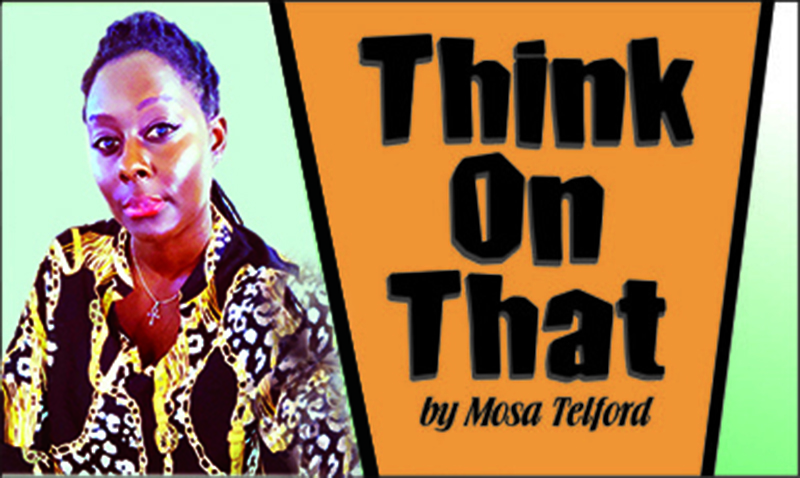The Guyana Prize for Literature Literary Festival began on February 29th and ended on March 3rd. There were workshops, storytelling, panel discussions, book launches, masterclasses, an exhibition of Guyanese literature, the awards ceremony, poetry slam and the winning Guyana Prize for Literature play 2002 ‘Father of the Man’ written by Professor Paloma Mohamed Martin was staged to end the festival.
I attended the awards ceremony on Friday March 1st. It was set to begin at 7pm. Knowing our culture of unpunctuality I decided that I would arrive about 45 minutes late. I thought that it would have started by then. I recalled that last year’s event started late and there was a blackout we had to sit through because there was no generator. The Guyana Power and Light never fails to disappoint us. The decades of incompetence, traumatises and angers us but most of us have learned to live with it. With foreigners in the midst during the prestigious Guyana Prize for Literature awards ceremony 2023, instead of being embarrassed that there was no generator to save us from sitting in darkness, one might have simply concluded that blackout is a part of our culture and those who visit us must be able to have the authentic Guyanese experience.
I deluded myself when I thought that being about forty-five minutes late, the ceremony would have started by then. It had not. Shortly after arriving Mr. Al Creighton made an announcement that they were waiting for the Prime Minister Mark Phillips and the Minister of Culture, Youth and Sport Charles Ramson to arrive. Another part of our culture is that government officials are often late, and we the people are expected to wait. It is unacceptable but exposes some of what we quietly accept without protest or efforts to change. Like so much more in our country we have learned to live with this, and one might argue too that it is also a part of the authentic Guyanese experience.
We waited for a little while until Mr. Creighton made another announcement that the ceremony would start without the government officials as they were at another event. Some members of the audience applauded. I suppose people were tired waiting, most for over an hour, and the awardees were anxious to have their moment in the spotlight. Eventually after the awards started the Prime Minister arrived and later, the Minister of Culture, Youth and Sport.
Before the awards were given for every category, we heard the judges’ reports. Some were quite lengthy. Nevertheless, the information that emerged from the judges who were both Guyanese and foreigners was thought-provoking and if writers take the advice, it will benefit them. Some of the comments were about submitting work that meets the criteria, there were issues with some of the work needing editing, some of the writing seeming forced and young writers were encouraged to read. Still however, the excellence of those who were shortlisted and the winners who emerged was commended.
I am especially happy about there being a youth category now in the Guyana Prize for Literature. I know how eager, excited but also fearful young writers can be to have their work not only critiqued but awarded. It is an exciting time to write and learn when one is young, and the burdens of the world have not yet crippled one in anyway. The freedom that comes with writing, the ability to inspire through that which comes from the soul, is a gift from the divine.
The awards ceremony ended sometime after 11pm and there was a cocktail reception. Despite the late start and the length of the awards ceremony, it was a joy to see writers being celebrated.
The next day the workshops, masterclasses and other activities continued at Castellani House. The poetry slam was held that night and I was one of the judges. The poets were bursting with talent. One of the themes for the competition was ‘Mental Health’ and quite a few of the poems that emerged from the 20 poets who were shortlisted focused on this theme. The fact that it was young people who were a part of the poetry slam, expressing themselves and exposing how they or others have struggled with mental health, is evidence of living in a toxic society that does not spare the young. We are a people living under extreme pressures, from children to adults battling social and other issues with individuals struggling to escape the mental prisons in which they feel trapped. Poetry is an art form through which such struggles can be expressed and can also be a coping mechanism. For anyone struggling there is always light at the end of the tunnel. I hope that anyone struggling is brave enough to share with those they trust and seek help.
There were also a few patriotic poems that stirred the audience. The poetry slam was a success but there could have been a bigger audience.
On the last night as aforementioned the festival was to end with the 2002 Guyana Prize winning play ‘Father of the Man’ written by Professor Paloma Mohammed Martin. The play was directed by Ms. Simeon (Simone) Dowding. Leading up to this event there were hardly any advertisements. Unless one is involved in theatre or pays close attention to the creative scene, one would not have known about the play. It was disappointing that the play was only highlighted a few hours before it was to be staged on the Facebook page of the Ministry of Culture, Youth and Sport. There was also a feature a few days before in the Guyana Chronicle. Yes, the play was listed on the calendar of events, but there was no ad campaign to inform and encourage people to go see the play, so it was poorly attended. It is quite disappointing when directors, their cast and crew put in weeks and even months of work only to not receive the support they need to market the play which often results in poor attendance.
The work put into the Guyana Prize for Literature 2024 by the Ministry of Culture, Youth and Sport must be commended. However, there is still work to be done for its overall improvement and success. Widely advertising the festival and its activities is one area that needs work.
During conversations with a few other writers, we discussed the fact that the Guyana Prize for Literature was previously biennial but is now annual and wondered if the population of writers in Guyana is large enough to maintain having the Guyana Prize for Literature yearly. There are writers who spend years writing their books and plays even though I am sure there are also those who would be able to produce quality work that can be awarded every year. Perhaps returning to a biennial prize would be more beneficial and see the overall production of more quality work.





